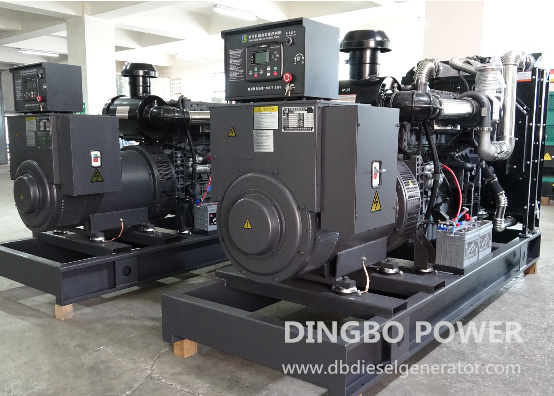If you experience frequent or long-lasting power outages in your area, you should include a day tank in your emergency generator fuel supply system. Generator day banks are designed to store fuel for backup generators. In this article, we’ll explore what a day tank for diesel generator is and you’ll understand its important role In the realm of power generation.
What is a diesel generator day tank?
A diesel generator day tank is a fuel storage vessel that supplies an emergency diesel genset with fuel source for short-term operations, typically 8 to 24 hours. The day tank is usually located near the generator. It can be a freestanding tank mounted in proximity to the generator, or it could be a sub-base tank with provisions to be used as a day-tank. In some cases, the day tanks can be located along one wall of the generator room for convenience or be located remotely in fire rated rooms based on relevant local restrictions. Unlike larger bulk fuel storage tanks, day tanks are smaller in size and contain a small amount of fuel which receives from a larger fuel storage tank. They allow the diesel generators to be connected to large fuel supplies and provide a buffer between the generators and the main fuel supplies. Therefore, with a day tank, your generator will still have enough fuel to continue operating if the main fuel supply is disrupted.

Benefits of a day tank for diesel generator
First of all, you need to understand whether a day tank is right for you. A fuel day tank may be an unnecessary investment for you if power outages are rare in your area. If you frequently encounter long-lasting power outages, it’s a good option to install a diesel generator day tank.
Day tanks help you avoid running out of fuel and ensure a continuous power supply by kicking in immediately when the primary power source fails. They can be used in conjunction with other types of fuel tanks to provide a longer-term solution for supplying fuel to your diesel generator.
Additionally, diesel generator day tanks don’t require substantial space and infrastructure. They are compact and space-efficient, which are ideal for installations of diesel generators where space is limited. Their proximity to the generator set minimizes the need for long fuel lines and reduces the risk of fuel contamination or leaks.
Generally speaking, diesel can last for around 12 months before serious degradation if stored at the right temperature with correct use of additives and regular maintenance. Compared to larger main fuel storage tanks, day tanks for diesel generator facilitate more frequent fuel turnover, which reduce the risk of fuel degradation and contamination.
Day tanks often feature integrated filtration and monitoring systems, which allows for prompt maintenance and troubleshooting. By minimizing downtime and reducing the risk of equipment damage caused by power interruptions, day tanks contribute to overall operational efficiency and mitigate the financial impact of unplanned outages.
What is the capacity of a diesel generator day tank?
Day tanks for diesel generator sets come in different shapes and sizes. Their sizes can range from 200 to 12,000 gallons. The larger the tank, the longer the running time. Typically, 250 gallons, 500 gallons and 1000 gallons are the three most commonly used diesel generator day tank sizes. The 250-gallon tanks are commonly used in smaller applications where space is limited or in small businesses in the event of an emergency. The 500-gallon tank size is perfect for most needs. They are usually used for applications that require a smaller amount of fuel, such as powering a small business or home. The 1000 gallon tanks are typically used for generators that have a power rating of 75 kW or less.
To choose the right day tank for your diesel generator, you need to consider how much fuel your generator uses in a day and the length of time you need to run your generator. Additionally, your power requirements should also be considered. If you need to power a lot of devices or appliances in the event of power cut, choose a larger day tank so that your generator can run for longer. In the cold weather, diesel fuel can gel and your diesel generator will need to consume more fuel to run for longer periods without needing to refuel.
Contact Dingbo Power for power generator solutions
Dingbo Power is a professional manufacture of diesel generator sets, which integrates the design, supply, commissioning and maintenance of generators. With more than 17 year’s of experience, we are committed to providing knowledgeable and experienced support to our customers from design and application through startup and commissioning. Dingbo Power provides dependable power generators of different types and sizes. We are solely focused on power generation and offer professional consultation to meet all your project needs. If you have questions about diesel generator day tank selection, requirements, or if you need any information regarding diesel gensets, contact us today.
Comments
Post a Comment